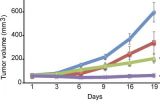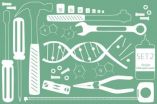(Press-News.org) If you're faced with a troubling personal dilemma, such as a cheating spouse, you may think about it more wisely if you consider it as an outside observer would, according to research forthcoming in Psychological Science, a journal of the Association for Psychological Science.
"These results are the first to demonstrate a new type of bias within ourselves when it comes to wise reasoning about an interpersonal relationship dilemma," says psychology researcher and study author Igor Grossmann of the University of Waterloo in Canada. "We call the bias Solomon's Paradox, after the king who was known for his wisdom, but who still failed at making personal decisions."
Grossmann and Ethan Kross from the University of Michigan asked study participants, all of whom reported being in monogamous romantic relationships, to reflect on a relationship conflict. They were asked to vividly imagine a scenario in which either their partner or a friend's partner had been unfaithful, and were then asked to answer a set of questions about the scenario.
The questions were designed to tap into dimensions of wise reasoning, such as the ability to recognize the limits of one's own knowledge, search for a compromise, consider the perspectives of others, and recognize the possible ways in which the scenario could unfold.
Results from the experiments indicated that participants who were asked to reason about a friend's relationship conflict made wiser responses than those who were asked to reason about their own relationship conflict.
In a second experiment, Grossmann and Kross investigated whether personal distance might make a difference. The procedure was similar to the first experiment, but this time they explicitly asked participants to take either a first-person perspective ("put yourself in this situation") or a third-person perspective ("put yourself in your friend's shoes") when reasoning about the conflict.
The results supported those from the first experiment: Participants who thought about their own relationship conflict from a first-person perspective showed less wise reasoning than those who thought about a friend's relationship conflict.
But taking an outsider's perspective seemed to eliminate this bias: Participants who thought about their own relationship conflict through a friend's eyes were just as wise as those who thought about a friend's conflict.
Interestingly, results from a third experiment that compared data from younger adults (ages 20-40) and older adults (ages 60-80) indicated that, contrary to the adage that wisdom comes with age, older participants were wiser in reasoning about their own relationship conflict than their younger counterparts.
Together, these findings suggest that distancing oneself from a personal problem by approaching it as an outsider may be the key to wise reasoning:
"We are the first to demonstrate that there is a simple way to eliminate this bias in reasoning by talking about ourselves in the third person and using our name when reflecting on a relationship conflict," said Professor Grossmann. "When we employ this strategy, we are more likely to think wisely about an issue."
INFORMATION:
This research was supported by the Rackham Predoctoral Fellowship and the Canadian Social Sciences and Humanities Research Council Insight Grant (both to I. Grossmann).
The APS journal Psychological Science is the highest ranked empirical journal in psychology. For a copy of the article "Exploring Solomon's Paradox: Self-Distancing Eliminates the Self-Other Asymmetry in Wise Reasoning About Close Relationships in Younger and Older Adults" and access to other Psychological Science research findings, please contact Anna Mikulak at 202-293-9300 or amikulak@psychologicalscience.org.
Distance from a conflict may promote wiser reasoning
2014-06-09
ELSE PRESS RELEASES FROM THIS DATE:
Penn Medicine at the International Congress of Parkinson's Disease and Movement Disorders
2014-06-09
Penn Medicine researchers will be among the featured presenters at the 18th International Congress of Parkinson's Disease and Movement Disorders in Stockholm, Sweden, from Sunday, June 8 to Thursday, June 12, 2014.
Matthew Stern, MD, director of the Parkinson's Disease and Movement Disorders Center in the Department of Neurology and current president of the International Parkinson's Disease and Movement Disorders Society, will chair a plenary session entitled "New insights into the pathology, progression, and heterogeneity of Parkinson's disease."
John Q. Trojanowski, ...
What causes garlic breath? (video)
2014-06-09
WASHINGTON, June 9, 2014 — Garlic is good for your body, great for your taste buds, but terrible for your breath. In the American Chemical Society's latest Reactions video, we look at the plant beloved by chefs and feared by vampires. Once again we teamed up with the Compound Interest blog to break down the chemistry of garlic, and how to beat the bad breath it causes. The video is available at http://youtu.be/cAWLQ_4DphI.
INFORMATION:
Subscribe to the series at Reactions YouTube, and follow us on Twitter @ACSreactions to be the first to see our latest videos.
The ...
Health Affairs asks: Where can we find savings in health care?
2014-06-09
Reducing Maternal Mortality In Zambia and Uganda. Margaret E. Kruk of Columbia University and co-authors assessed the effectiveness of Saving Mothers, Giving Life, a new global public-private partnership that aims to reduce maternal mortality in eight districts in Uganda and Zambia. They evaluated the first six to twelve months of the program's implementation, its ownership by national ministries of health, and its effects on health systems. According to the authors, early benefits to the broader health system included greater policy attention to maternal and child health, ...
Common bean genome sequence provides powerful tools to improve critical food crop
2014-06-09
Huntsville, Ala. – String bean, snap bean, haricot bean, and pinto and navy bean. These are just a few members of the common bean family — scientifically called Phaseolus vulgaris. These beans are critically important to the global food supply. They provide up to 15 percent of calories and 36 percent of daily protein for parts of Africa and the Americas and serve as a daily staple for hundreds of millions of people.
Now, an international collaboration of researchers, led by Jeremy Schmutz of the HudsonAlpha Institute for Biotechnology and Phillip McClean, of North Dakota ...
Sequencing of citrus genomes points to need for more genetic diversity to fight disease
2014-06-09
Huntsville, Ala. – Sequencing the genomes of domesticated citrus revealed a very limited genetic diversity that could threaten the crop's survival prospects, according to an international research team. In a study published in the June issue of Nature Biotechnology, the international consortium of researchers from the United States, France, Italy, Spain and Brazil analyzed and compared the genome sequences of 10 diverse citrus varieties, including sweet and sour orange along with several important mandarin and pummelo cultivars. The findings provide the clearest insight ...
Combination therapy may help patients with follicular lymphoma
2014-06-09
A new study in The Journal of Experimental Medicine reveals that a high-risk group of patients with follicular lymphoma could benefit from a novel drug combination.
Follicular lymphoma, a B cell lymphoma, is an incurable form of non-Hodgkin lymphoma that is diagnosed each year in 120,000 people worldwide. Follicular lymphoma is characterized by slow and relentless tumor growth with inevitable relapses despite intense chemotherapy. Follicular lymphomas are driven by mutations that activate the BCL2 protein, which prevents cancer cells from dying, but additional genetic ...
No limits to human effects on clouds
2014-06-09
Understanding how clouds affect the climate has been a difficult proposition. What controls the makeup of the low clouds that cool the atmosphere or the high ones that trap heat underneath? How does human activity change patterns of cloud formation? The research of the Weizmann Institute's Prof. Ilan Koren suggests we may be nudging cloud formation in the direction of added area and height. He and his team have analyzed a unique type of cloud formation; their findings, which appeared recently in Science indicate that in pre-industrial times, there was less cloud cover over ...
UNC researchers pinpoint new role for enzyme in DNA repair, kidney cancer
2014-06-09
CHAPEL HILL, N.C. – Twelve years ago, UNC School of Medicine researcher Brian Strahl, PhD, found that a protein called Set2 plays a role in how yeast genes are expressed – specifically how DNA gets transcribed into messenger RNA. Now his lab has found that Set2 is also a major player in DNA repair, a complicated and crucial process that can lead to the development of cancer cells if the repair goes wrong.
"We found that if Set2 is mutated, DNA repair does not properly occur" said Strahl, a professor of biochemistry and biophysics. "One consequence could be that if you ...
Did violence shape our faces?
2014-06-09
(Salt Lake City) —What contributed to the evolution of faces in the ape-like ancestors of humans?
The prehistoric version of a bar fight —over women, resources and other slug-worthy disagreements, new research from the University of Utah scheduled for publication in the journal Biological Reviews on June 9 suggests.
University of Utah biologist David Carrier and Michael H. Morgan, a University of Utah physician, contend that human faces —especially those of our australopith ancestors — evolved to minimize injury from punches to the face during fights between males. ...
Iron supplements improve anemia, quality of life for women with heavy periods
2014-06-09
A study by researchers from Finland found that diagnosis and treatment of anemia is important to improve quality of life among women with heavy periods. Findings published in Acta Obstetricia et Gynecologica Scandinavica, a journal of the Nordic Federation of Societies of Obstetrics and Gynecology, suggest clinicians screen for anemia and recommend iron supplementation to women with heavy menstrual bleeding (menorrhagia).
One of the common causes of iron deficiency and anemia is heavy bleeding during menstration. Over time monthly mentrual iron loss without adequate ...





